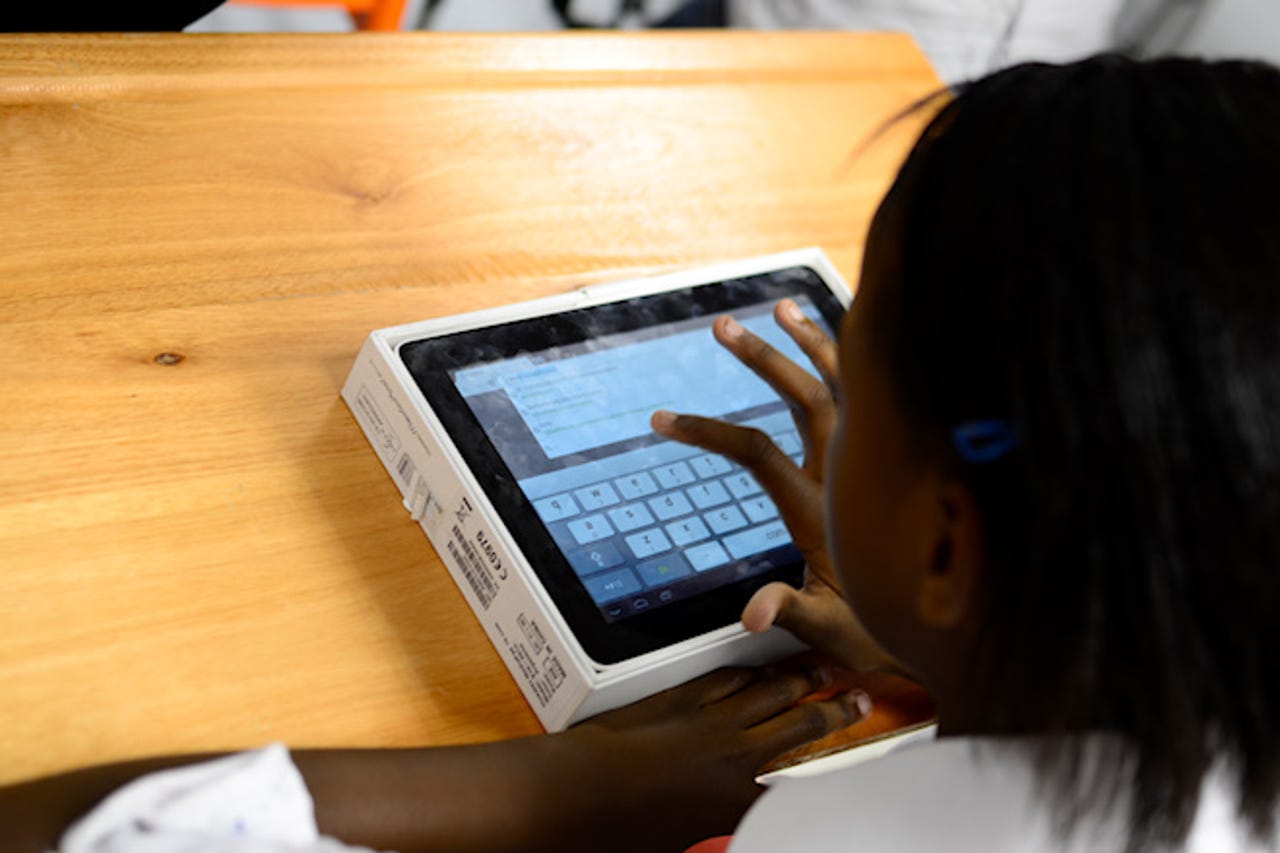South Africa kicks off tablet pilot with slates for every schoolkid in Gauteng

The 2015 academic year begins in South Africa today, and is being marked in the province of Gauteng by the formal launch of an ambitious plan to give every child in the area a tablet for their education, and upgrade every public school with the IT infrastructure and connectivity to make full use of them.
'Classrooms of the Future' is being piloted in seven Gauteng schools. The pilot will be monitored over the course of the next two years, with a view to introducing paperless classrooms in all public schools in the province by 2018.
After OLPC, does IT in education have a future?
The pilot has the backing of the national government, and deputy president Cyril Ramaposa attended the flagship school in Tembisa township just north of Johannesburg this morning.
"Technology, the internet, a multi-skilled workforce, innovation, and collaboration are critical to the success of the knowledge economy," Ramaposa said.
The project has been championed by Gauteng's head of education, Panyaza Lesufi.
"This is a revolution to empower and equip our children," Lesufi said. "In the future these children won't rely on grants, they'll rely on skills."
Classrooms of the Future was inspired by a local fee-paying public school, Sunward Park, which abandoned textbooks in favour of tablets two years ago.
Lesufi said that although the pilot was only conceived after elections in April last year - after departmental budgets were set - he pushed through the rapid deployment without spending extra money. Primarily, he explained, budgets and equipment have been taken from other, failing IT projects and he's worked with other government departments, such as Communications, and the private sector to ensure their obligations for connectivity are met.
The tablets themselves, for example, are Android-powered Huawei MediaPads, which were purchased last year for a separate project. Each school in the pilot has a fibre connection and wi-fi network provided by Ruckus Wireless, and each tablet has 4G connectivity with bandwidth provided so that children can study at home.
South African mobile operators are obliged to provide free connectivity for underprivileged communities as part of their licence commitments, but most prefer to pay fines than deliver required services.
Lesufi also said savings from the textbook budget made by switching to ebooks will be used to cover other costs.
"I've just tweaked things," he said, citing a budget that allows for around 230 rand ($20) for a textbook that will last three years compared to ebooks which cost around 70 rand ($6) a licence.
Lesufi acknowledged that security is a concern, as even low cost tablets may have a high perceived value in the disadvantaged communities he's targeting with the pilot. He urged pupils who are attacked for their tablets to hand them over rather than risk their safety. He said local police departments and private security firms have been put on standby to recover stolen tablets via tracking software.
The learning platform itself is being developed by local software provider and system integrator, MIB Technology. MIB has worked closely with Sunward Park over the last two years to develop a back-end and portal that works with the South African curriculum. Its portal is similar to a platform-agnostic iTunes U, aggregating content and allowing teachers to share lesson plans and notes as required. During the pilot MIB will be training teachers and supporting staff on best practice for using tablets in the classrooms.
Read more on education
